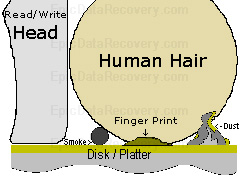
Posted on 01/20/2014 2:51:32 PM PST by Sir Napsalot
The brains of older people only appear to slow down because they have so much information to compute, much like a full-up hard drive, scientists believe.
Older people do not decline mentally with age, it just takes them longer to recall facts because they have more information in their brains, scientists believe.
Much like a computer struggles as the hard drive gets full up, so to (sic) do humans take longer to access information, it has been suggested.
Researchers say this slowing down it is not the same as cognitive decline.
“The human brain works slower in old age,” said Dr. Michael Ramscar, “but only because we have stored more information over time
“The brains of older people do not get weak. On the contrary, they simply know more.”
A team at Tübingen University in Germany programmed a computer to read a certain amount each day and learn new words and commands.
When the researchers let a computer “read” only so much, its performance on cognitive tests resembled that of a young adult.
But if the same computer was exposed to the experiences we might encounter over a lifetime – with reading simulated over decades – its performance now looked like that of an older adult.
Often it was slower, but not because its processing capacity had declined. Rather, increased “experience” had caused the computer’s database to grow, giving it more data to process – which takes time.
(Excerpt) Read more at telegraph.co.uk ...
Same here! Some old fart should formulate a "Forgetting Unimportant Data" seminar and start making big money.
F15Eagle is right. Unused information gets stored in long term memory.
However, it’s not that there is “deeper digging”, it’s that when our brain moves something to long term memory is runs a compression algorithm on the data in order to store it more efficiently.
For most people, the algorithm is lossy (kind of like JPEG only completely different), which is why older folks can remember things but the details can get sketchy. There is also the factor of “generational loss”, which happens when information is retrieved and decompressed, and then re-compressed again.
The algorithm resides in the Hypothalgooglemus portion of the brain which is responsible for the search related functions (and also where Google got the name for their search engine).
So it’s not lack of space, it’s the time to decompress the data and the potential compression loss that is the problem.
When short term memory becomes a problem, it’s because there is a error in the block read of the algorithm in the Hypothalgooglemus and it’s searching the archives first.
That’s my story and I’m sticking with it.
That’s what I’ve been telling my kids!

I believe my daily grind of mathematics keeps my brain moving...but remember...it's still just manipulating 0-9.
On the other end, I do historical research which is a massive puzzle. Difficult but it's all connected somehow. I follow the people via maps. I know who was the neighbor of whom...the wives and the kids and the stream they fished in. Fun but what a ride.
Also...I had my glasses on a chain at one time...so they came on and off.
Then one day the chain broke. No problem...except the next time I took my glasses off....they dropped to the floor...Life is so fun.
I put the toilet seat down. He remembers!!
Done the top of the head thing.

The article is correct. In fact I know so much now my head tilts on a angle.
“Then my bud chimed in.....Shatner.”
Actually, the correct answer is Chris Pine. Chris Pine. :-).
Before Star Trek fans collectively kill me for that comment, I really hope I am still applying serious mathematics when I hit your age :-). I just fear that with the current trajectory society is following, I’ll be discarded in another 25 years or so :-).
Our brains aren’t nearly as mystical as we would like to believe.
I’ve often heard it said that our brains collect all the information that we hear, see, touch, taste etc, but the exact opposite appears to be true. When we look out across a field at a tree, our brains aren’t filing away every blade of grass, leaf, cloud etc into memory. In reality our brains are filling in a lot of info from stored memory of similar scenes and its often pretty vague.
Since taking up photography I’ve noticed how much information I miss while taking the shot but see it for the first time while looking at the photo. I’ve got a picture with several deer way off in the distance that I didn’t see when I took the picture. I do remember taking the picture because I was in a place I don’t usually go and I was further out in the woods than usual but I didn’t see the deer despite having them almost perfectly centered in the shot.
At 63 I think that I have a quite large junk drawer.
Chris was a pretend Kirk. Shatner was real.
I think it was the Tommyknockers movie where the guy was in the warehouse of his brain.
“At 63 I think that I have a quite large junk drawer.”
—
At 81 I’d like to arrange a junk drawer swap with you.
Mine is really cluttered.
Also,what the heck is this thread about?
.
Thank goodness the brain has this great trash compactor.
I’m older...that is BS.
Disclaimer: Opinions posted on Free Republic are those of the individual posters and do not necessarily represent the opinion of Free Republic or its management. All materials posted herein are protected by copyright law and the exemption for fair use of copyrighted works.